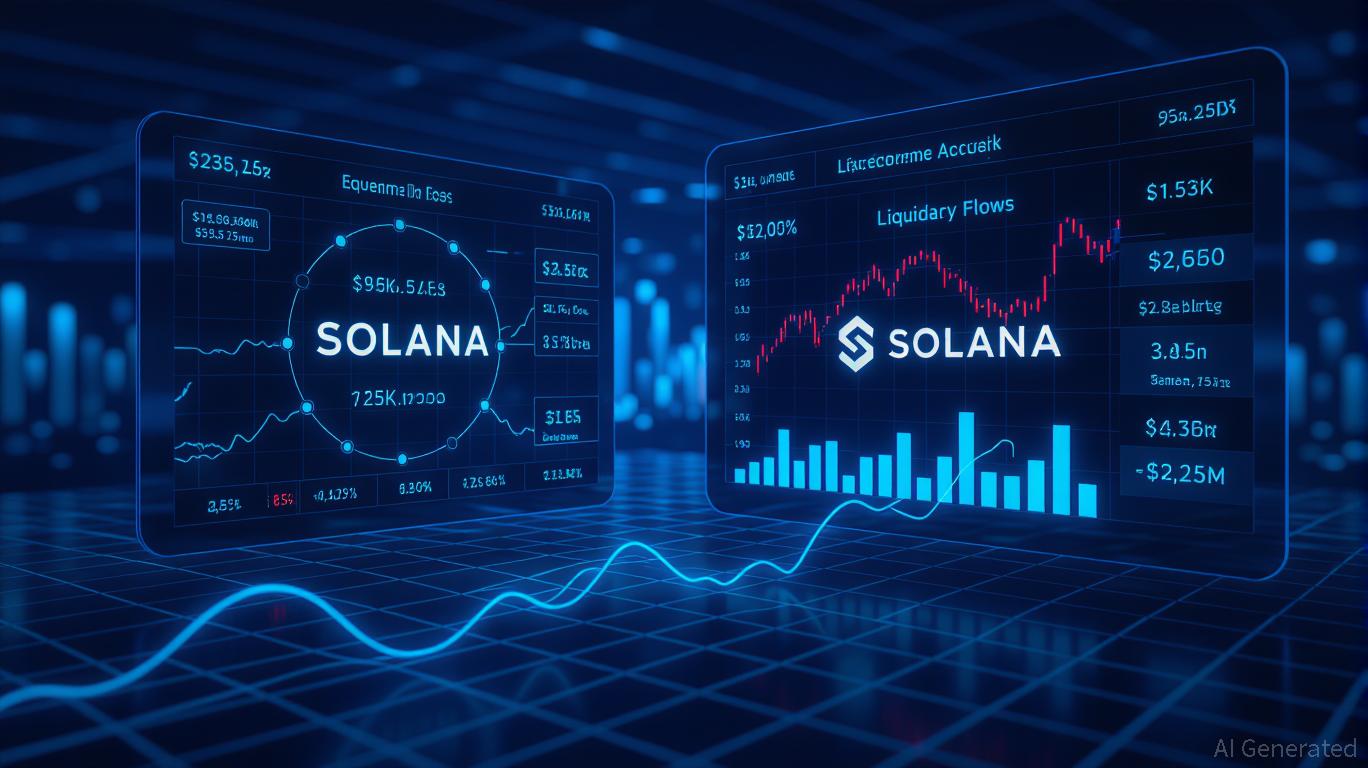Thai Police Capture Hacker, Retrieve $7.64 Million in Landmark Cryptocurrency Law Enforcement Action
- Thai police arrested a hacker who exploited a vulnerability in Yala's Bitcoin-native platform, stealing $7.64 million in digital assets before most funds were recovered. - The breach caused Yala's stablecoin YU to temporarily lose its dollar peg, highlighting DeFi security risks as innovation outpaces safeguards. - Yala resolved user claims with recovered assets, while experts praised the arrest as a rare enforcement success showing law enforcement's growing crypto-crime capabilities. - The case undersco
On October 29, Yala, a cryptocurrency protocol based in Bangkok, revealed that Thai law enforcement had apprehended the individual behind the security incident that occurred on September 14. This arrest marks a major step forward following the theft of $7.64 million in digital assets, as reported by a
The attacker exploited a flaw in Yala’s Bitcoin-based liquidity platform, enabling them to drain about $7.64 million in crypto assets. Yala’s team worked quickly with police in Thailand to track the hacker’s online activities, which led to the suspect’s arrest in Bangkok. The successful recovery of most of the funds has been described as an uncommon victory in the turbulent world of cryptocurrency crime, highlighting the increasing effectiveness of law enforcement in pursuing and prosecuting digital asset theft, according to BitcoinWorld.

“This arrest highlights the value of cooperation between private blockchain projects and government agencies,” a Yala spokesperson stated. The protocol confirmed that all user claims have been addressed, and the recovered funds have been returned to those affected. Nonetheless, the event has brought renewed attention to persistent vulnerabilities in decentralized finance (DeFi), where rapid advancements can sometimes outpace security safeguards.
The apprehension of the suspect carries wider significance for the crypto sector, representing a rare example of accountability in an industry often troubled by crimes enabled by anonymity. Experts point out that the successful retrieval of assets—an unusual outcome in major hacks—might discourage similar attacks in the future. “This case demonstrates that law enforcement can take effective action even in decentralized environments,” commented one industry analyst. The situation also underscores the necessity for protocols to routinely audit their security and establish strong incident response plans.
Although the resolution has helped restore user trust, the breach has exposed the vulnerabilities of DeFi platforms. During the attack, Yala’s stablecoin lost its dollar peg, intensifying market instability and raising concerns about the durability of Bitcoin-based liquidity solutions. In response, the protocol has reaffirmed its dedication to improving security, including implementing multi-factor authentication and real-time monitoring tools.
As the cryptocurrency industry faces ongoing regulatory and technical hurdles, the Yala incident signals a pivotal change: traditional law enforcement is playing a more prominent role in combating digital crimes. With most of the stolen assets recovered and the perpetrator in custody, this case could set a benchmark for future partnerships between blockchain initiatives and authorities, contributing to a safer environment for digital asset growth.
Disclaimer: The content of this article solely reflects the author's opinion and does not represent the platform in any capacity. This article is not intended to serve as a reference for making investment decisions.
You may also like
Ethereum News Update: Amundi’s Integrated Approach Connects Blockchain with Conventional Financial Regulations
- Amundi, Europe's largest asset manager, launched its first Ethereum-based tokenized money-market fund, enabling 24/7 settlements and transparent record-keeping via blockchain. - The hybrid model, developed with CACEIS, combines traditional fund operations with blockchain-based ownership, preserving regulatory compliance while expanding investor access. - Ethereum's dominance in stablecoin and RWA transfers ($105.94B in 30 days) underscores its role in accelerating tokenization, with Amundi positioning it

XRP News Today: XRP ETFs Drive Price Increases, While Solana ETFs Ease Selling Pressure
- XRP ETFs raised $587M in inflows since late November, outpacing Solana's $568M as investors favor altcoins with regulatory clarity and utility. - Bitwise XRP ETF's $107M debut and zero-fee strategy drove momentum, while Solana ETFs faced $156M weekly outflows due to network reliability concerns. - XRP's inflows acted as a "battering ram" pushing prices above $2.27, contrasting Solana's ETFs which merely dampened sell pressure without reversing its decline. - Analysts predict XRP could reach $3 by Decembe

The Federal Reserve's Change in Policy and Its Impact on Alternative Cryptocurrencies Such as Solana
- Fed's 2025 policy shifts, including rate cuts and stablecoin regulations, are reshaping altcoin markets by altering liquidity and risk appetite. - Solana's Alpenglow upgrade (150ms finality, 1M TPS) addresses scalability issues, aligning with Fed's AI-driven infrastructure focus despite network reliability concerns. - Institutional inflows into Solana ETFs ($100M AUM) contrast with retail caution (78% HODLers in red), highlighting divergent risk perceptions amid 30% price corrections. - Divergent ETF flo

Avail's Intent-Driven Nexus Addresses the Issue of Fragmented Liquidity Across Chains
- Avail launches Nexus Mainnet, a cross-chain solution unifying liquidity across Ethereum , Solana , and EVM networks. - The intent-solver model enables seamless asset transfers without technical complexities, streamlining user experiences. - Developers gain modular tools for multichain integration, reducing costs as cross-chain liquidity demand grows. - Nexus abstracts execution layers, offering unified balances and execution while addressing fragmentation challenges. - With $50B+ in cross-chain activity
